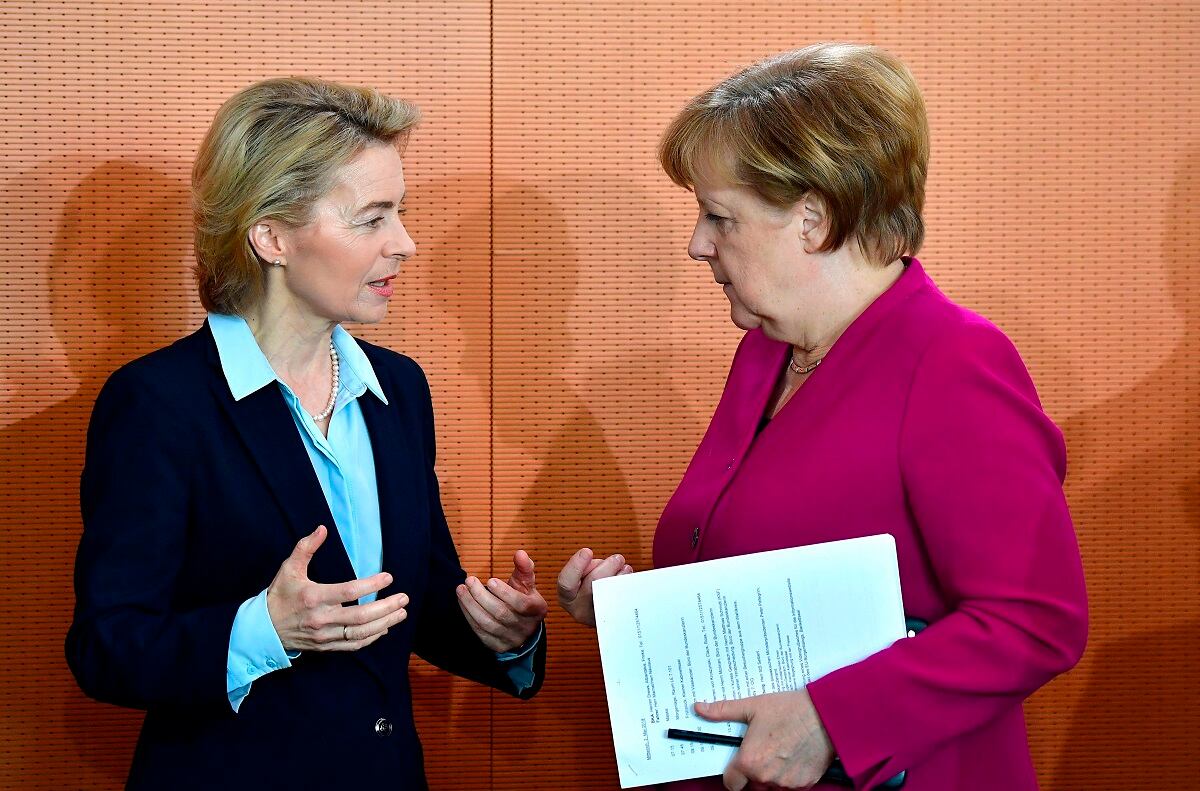COLOGNE, Germany — The German government has presented an ambitious plan for beefing up the country’s armed forces over the next 10-plus years.
The strategy comes in the form of a new “capability profile,” described by Defence Minister Ursula von der Leyen as a “grand, comprehensive modernization concept.” At its intermediate point, by 2024, it proposes Germany’s annual defense budget at 1.5 percent of gross domestic product, or about €60 billion (U.S. $69 billion).
That would amount to a sizable increase for a country currently hovering around a GDP of €40 billion. But it would still fall short of the NATO-wide objective of spending 2 percent of GDP on defense.
In von der Leyen’s telling, the new strategy would lift the armed forces from years of budget cutbacks and deprivation toward a set of capabilities deep enough to defend the homeland and simultaneously partake in out-of-area missions.
In the telling of critics, the strategy amounts to little more than wishful thinking because it assumes defense spending way above what is currently on the table.
The Social Democrats, which hold the reigns of the Finance Ministry in the current coalition government, previously rejected the type of stark budget boosts that the Defence Ministry believes is needed to plug longstanding shortfalls.
RELATED

According to a summary of the classified document released by the Defence Ministry, there are two priorities in the envisioned spending spree: soldier equipment and bringing the Bundeswehr up to speed in cyber capabilities.
Germany’s role in 2023 as a framework nation for the NATO Very High Readiness Joint Task Force will mark the first milestone in the government’s plan, which goes out to 2031. Berlin is expected to provide a modernized “brigade-equivalent” force package including air and naval components.
In accordance with another strategy document released last month, an updated concept of operations for the Bundeswehr, the new capability framework is built around the idea that there will be parity between the fundamental missions of defending Germany's territory and conducting overseas missions.
While seeming trivial at first, that proclamation will have far-reaching, practical consequences on spending. Over the past years, defense leaders have routinely accepted shortfalls in home-station training to ensure troops in combat zones have the best possible equipment. Formally elevating the importance of homeland defense in the armed forces' planning means pumping new money into an area that officials say has been chronically underfunded.
The coming months will show how lawmakers, and especially those of the Social Democratic Party, will react to the proposal. Fritz Felgentreu, one of the party’s leading voices on defense matters, told the Tagesschau website that the new strategy reads like a “well-thought-out wish list.” He said he wants to see a “concrete analysis” of exactly where additional money is needed.
Tobias Lindner, a defense expert with the opposition Green Party, said the envisioned defense increases would be incompatible with the government’s objective of crafting debt-neutral budgets. In addition, Lindner told the Zeit website that the government should have consulted parliament first before putting together a strategy with such far-reaching budget implications.
Sebastian Sprenger is associate editor for Europe at Defense News, reporting on the state of the defense market in the region, and on U.S.-Europe cooperation and multi-national investments in defense and global security. Previously he served as managing editor for Defense News. He is based in Cologne, Germany.







